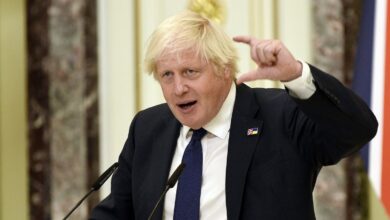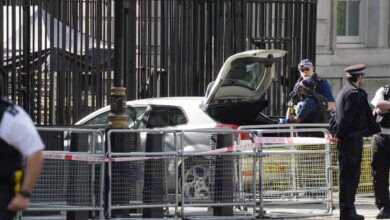Leading university and business school paid more than £700k via Russian bank days after Ukraine invasion

One of the country’s leading universities and a top business school have been paid nearly £15m via a Kremlin-controlled bank in less than a decade – including more than £700,000 in the wake of Russia’s invasion of Ukraine.
As part of efforts to cut off the Russian economy, the UK sanctioned Sberbank – the CEO of which has been described as a close ally of Vladimir Putin – on 1 March.
But an investigation by The Independent has found that Imperial College London and London Business School (LBS) have collectively been paid more than £740,000 by Sberbank Corporate University – funded by the Kremlin-controlled bank – since then.
Though there is no suggestion that the payments are in breach of sanctions, they raise ethical questions about the institutions’ financial relationships – with a leading campaigner condemning them for receiving the money. LBS entered into business with SCU following the annexation of Crimea, while Imperial set up its partnership with the university after the Salisbury poisonings.
In total, Imperial College and LBS have been paid £14.8m by Sberbank Corporate University to provide training in less than a decade.
Imperial College said its partnership with Sberbank Corporate University “ceased in February”. It received a payment of £484,500 on 17 March – more than two weeks after Sberbank was sanctioned following the invasion.
LBS said it had “stopped all association with Russian organisations” by 4 March, and that three days later it received a £255,938 payment from Sberbank Corporate University “via Sberbank”. The payment was, LBS said, “permitted through a general licence… [which] allowed organisations to settle their financial affairs in the UK through Sberbank until 31 March 2022”.
Established in 2012, Sberbank Corporate University describes itself as an “Autonomous Non-Commercial Organization”. However, Sberbank’s CEO Herman Gref is also the chairman of the board of Sberbank Corporate University, according to its website. Gref was personally sanctioned by the UK on March 24.
Meanwhile, a Russian language document available on Sberbank Corporate University’s website details that it is funded by Sberbank. According to a translation from Russian, it states: “The activities of the Corporate University are carried out through funding from the targeted financing of Sberbank PJSC”.
On 28 February, days after Russia’s invasion of Ukraine, UK foreign secretary Liz Truss announced that Sberbank would be prevented from clearing payments in sterling. On 1 March, PJSC Sberbank was designated on the UK sanctions list, with prohibition on correspondent banking and sterling clearing. Sberbank was later designated with an asset freeze on 6 April.
The UK’s sanctions list states that the bank “is involved in obtaining a benefit from or supporting the Government of Russia”, adding: “The Government of Russia has a controlling share in PJSC Sberbank, meaning that PJSC Sberbank also carries on business as a Government of Russia-affiliated entity.”
Responding to a Freedom of Information request from The Independent asking about funding received since 2013/4, Imperial College indicated it had not received any from Sberbank over the time period.
But, after being challenged, the university revealed that it had received £2.4m from Sberbank Corporate University since December 2019 – meaning the payments started more than a year after the Salisbury attack in March 2018.
Imperial College said that its “partnership” with Sberbank Corporate University “ceased in February when we reviewed all connections with Russia following the invasion of Ukraine”. It also disclosed its last payment was received on 17 March this year and was worth £484,500. The payment was for work delivered in January, the university added.
The Independent has discovered that Imperial’s website was edited to remove references to the management programme. An archived version of the university’s website, from December last year, stated that its “Digital Technology Executive Programme was delivered in partnership with Sberbank Corporate University to a diverse cohort of Senior Executives from a breadth of specialisms”. According to the university, it was removed from the website when it said it ceased the partnership in February.
Responding to a Freedom of Information request by The Independent asking for information about whether it had received funds since 2013/4 from a list of sanctioned individuals and organisations – including Sberbank – LBS initially appeared to specify that it had received £6.186m from Sberbank since 2017/18.
However, after The Independent highlighted a news item on Sberbank Corporate University’s website from March 2018 about a graduation ceremony for the sixth intake of its “executive development program, delivered jointly with the London Business School”, LBS admitted to an “oversight”. LBS detailed that it had received the money from Sberbank Corporate University, disclosing that funds totalled £12.39m since 2013/4.
Sberbank Corporate University’s website boasts that the joint programme had “not only made a huge impact on the development of Sberbank Group executives but also become a unique example of a successful strategic partnership between a Russian corporate leader and one of the top global centres of business education”.
LBS said it had “stopped all association with Russian organisations” since 4 March 2022. It later revealed that its final payment from Sberbank Corporate University, worth £255,938, was received on 7 March. The payment, it said, “related to services delivered in 2021”. It later clarified that Sberbank Corporate University “chose to make the payment via Sberbank”.





